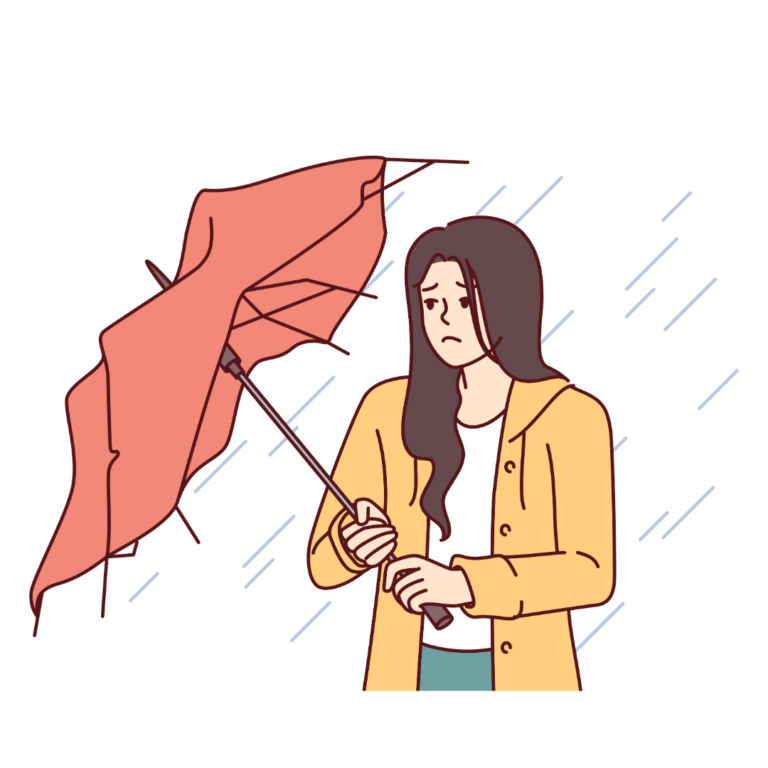It’s winter, there’s no snow, the days are getting shorter, and it’s starting to feel like the season is weighing down on you. You feel like you want to just lay in bed, watching shows all day, ignoring everything else. In my experience, I seem to never want to do anything productive, start falling behind in school, and overall feel like I want to morph into a potato bug.
If you’ve ever felt anything like this but only during a specific period, it is known as seasonal depression. Also known as Seasonal Affective Disorder (SAD), is usually known to occur in the winter or fall months. Though many people may be taken over by the ‘winter blues’, SAD is a much more serious form of seasonal mood changes that can significantly impact daily life. So, don’t just brush this off as a normal thing, take care of yourself and work towards understanding causes, symptoms, and coping strategies that can help you and your loved ones get through this period.
First, let’s talk about the specific causes of seasonal depression so we can further understand where this stems from. Although there are many causes, these are some of the factors which may cause the onset of SAD. One of the causes is low levels of serotonin and vitamin D levels due to less exposure to sunlight during the day and low serotonin levels are connected to feelings of sadness or depression.
Now that we understand the causes of SAD, let’s talk about the symptoms and how to recognize the fact that you may be experiencing seasonal depression and not just going through the ‘winter blues’. According to the Mayo Clinic, there are symptoms specific to the winter or the summer; the symptoms most prevalent in the winter are oversleeping, changing appetite, tiredness/ low energy, and more. Although winter depression is more common, you may also deal with summer depression, the symptoms of this include weight loss, insomnia, anxiousness, etc. These are just the most common symptoms people have reported, so you may be feeling something that I haven’t listed, I’m just making sure that you know what to look for if you want to understand what you’re dealing with.
As you’ve probably gathered from all of the information above, seasonal depression is far from awesome, so let’s get through it together.
If you’ve been diagnosed you probably have your treatment plan which most likely, according to UC Davis Health, includes light therapy, getting enough vitamin D, and maybe prescribed meds. But there are other things you can implement to stay healthy as well! Before I talk about that I want to make sure you know that it is very important to take care of yourself, especially during the times you may not feel so great, put your mental health first!
First off, you’re going to want to spend a good amount of time outside, whether it’s going out for a walk, hanging out with a few friends or even just going out to walk your dog. These things may seem trivial at the moment but trust me, they will do wonders for your health. Get social, make plans, go to that concert, get an ice cream with your friends, whatever it may be, go out there and be social. With SAD, I know you’ll probably want to stop going out and want to lie in bed all day but, being with others will help stimulate your mood! I understand that there are times when it does feel like your social battery is dead and you would rather do anything but go out, and when it feels like that then yes, take some time to recharge your battery. You’re only human, and I know there are so many stressful things going on sometimes but make sure that you aren’t getting stuck in a place where you haven’t been out for weeks at a time, it’ll only worsen the SAD. Lastly, reach out to a support network, people you know you can talk to, and those who will listen to you and help you while you feel down. Reaching out to them could also help them help you by keeping you accountable for the tasks you want to get done or other things you need to do. This will help you stay grounded and be on top of things as well.
In conclusion, don’t take this lightly, make sure you know when to reach out for help from close friends or family if you need it. I hope this article helped you understand what you’ve been feeling, and what steps you can take to get back on track and motivated you to take care of yourself! Because you are important and your mental health is important too, so look after yourself and stay healthy! You can do it, I believe in you 🙂
Written By: Poorvi Deshpande, Mental H2O Youth Resource Writer


